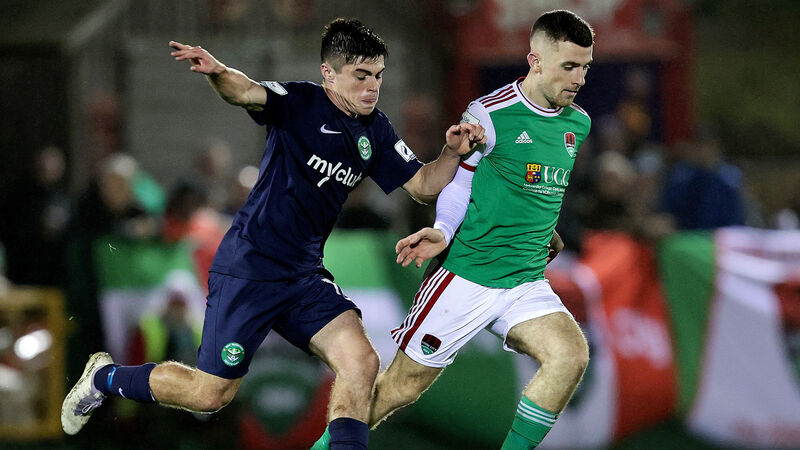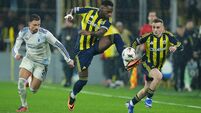John Fallon: Winners and losers from latest year of domestic bliss

STAR BOY: Cork City's Aaron Bolger and Josh McGlone of the Bray Wanderers.
T’S that time of the year when the annual gongs for the domestic game are imminent so we’ll enter the realm of opinion ourselves by awarding virtual accolades.











